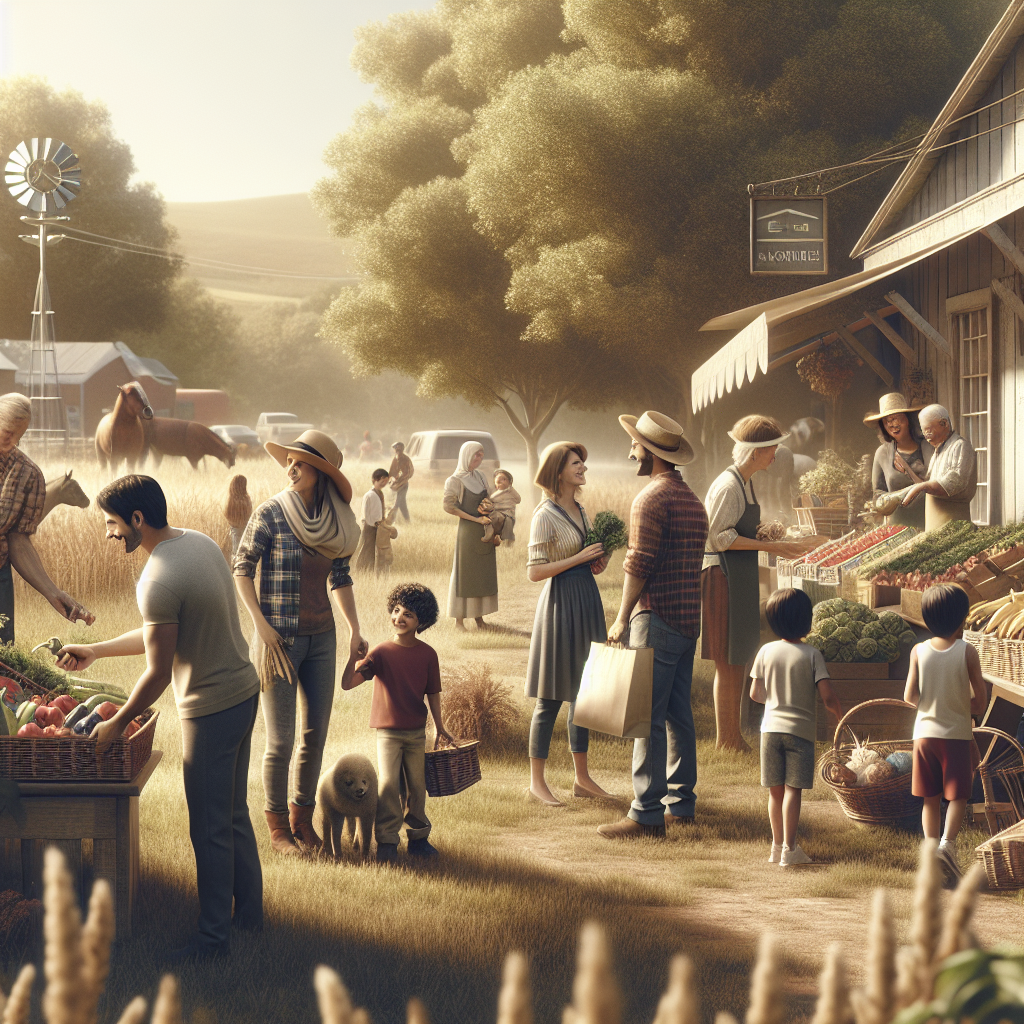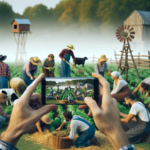Introduction to Building Customer Loyalty
Welcome! Wondering what customer loyalty is and how it plays a vital role in the success of a business? Look no further. In this article, I’ll be your guide on understanding customer loyalty. We’ll explore its importance, the effective strategies for building it, and the challenges that might come along the way.
We’ll also examine the psychology behind customer loyalty, how to foster customer advocacy, the significance of employee engagement, and the advantages of leveraging advanced technologies like CRM systems and artificial intelligence.
Ever hear the old saying, “Make new friends, but keep the old?” Well, it turns out that holds true for business relationships as well. A study by Bain & Company suggests that increasing customer retention rates by just 5% can improve profits by 25% to 95%. So, let’s work on making not just repeat customers, but loyal ones!
What is Building Customer Loyalty?
Understanding Customer Loyalty
Customer loyalty refers to customers consistently choosing a particular company’s products or services over competitors. This loyalty results from a positive customer experience, satisfaction, and perceived value. It’s critical for businesses because it can lead to repeat purchases and word-of-mouth promotion.
Importance of Customer Loyalty
Building customer loyalty is essential for various reasons:
- Reduced marketing costs: Loyal customers require less marketing effort to convince them to make a purchase.
- Higher lifetime value: Loyal customers tend to increase their spending over time.
- Positive word-of-mouth: Satisfied customers often recommend the business to others.
- Resilience against competition: Loyal customers are less likely to be swayed by competitors.
Strategies for Building Customer Loyalty
There are several effective strategies for fostering customer loyalty:
- Exceptional Customer Service: Providing excellent customer service ensures customers feel valued and taken care of.
- Personalization: Tailoring experiences and offers to individual preferences can make customers feel special.
- Loyalty Programs: Rewarding repeat customers with points, discounts, or exclusive perks can incentivize ongoing engagement.
- Quality Products: Consistently delivering high-quality products ensures customer satisfaction.
- Feedback Mechanism: Actively seeking and acting on customer feedback shows that you value their opinions.
Measuring Customer Loyalty
To assess the effectiveness of your customer loyalty efforts, consider using these metrics:
| Metric | Description |
|---|---|
| Net Promoter Score (NPS) | Measures customer willingness to recommend your business to others. |
| Customer Retention Rate | Percentage of customers who continue doing business with you over time. |
| Customer Lifetime Value (CLV) | Total revenue expected from a single customer throughout their relationship with your business. |
| Repeat Purchase Rate | Percentage of customers who make multiple purchases. |
Leveraging Technology
Modern technology, like Customer Relationship Management (CRM) systems, can aid in building customer loyalty. CRM systems help businesses manage interactions, track customer data, and personalize communication, making it easier to create meaningful customer relationships.
Consistent Communication
Frequent and consistent communication keeps your brand top-of-mind. Utilize email newsletters, social media updates, and personalized messages to maintain an ongoing dialogue with your customers.
Building a Community
Encouraging a sense of community among your customers can strengthen loyalty. Build forums, host events, or create social media groups where customers can interact with each other and your brand. This fosters a sense of belonging and support.
Deeper Insights into Customer Loyalty
Psychology of Customer Loyalty
The psychology of customer loyalty is rooted in positive emotions and trust. When customers have trust in a brand, they feel secure in making purchases. This trust often leads to repeated purchases and hence, loyalty. According to a study by the Harvard Business School, emotional connection with a brand is a stronger driver of loyalty than factors like satisfaction or effectiveness of services.
Fostering Customer Advocacy
Customer advocacy goes a step beyond loyalty. It refers to customers who are so satisfied and loyal to your brand that they actively promote and endorse it. Establishing strong emotional connections and providing impactful user experiences can foster customer advocacy.
- Exclusive Rewards: Offering exclusive rewards or access can increase a customer’s sense of value. It could be early access to new products, exclusive content or a private community.
- Referral Programs: Encourage loyal customers to become brand advocates by rewarding them for each referral they bring in.
- Authenticity and Transparency: Customers value authenticity and transparency. Being honest about your brand’s intentions and operations can increase trust and advocacy.
Challenges in Building Customer Loyalty
Building customer loyalty isn’t without its challenges. These could vary from managing customer expectations to keeping up with competitive offerings, to handling negative reviews tactfully.
- Change in Customer Preferences: Rapid change in trends and customer preferences can be challenging to keep up with, but it’s critical to stay relevant.
- Competitive Market: Customers have a variety of options, and a small slip in service can lead them to switch brands.
- Negative Feedback: Handling negative feedback appropriately can be challenging but is essential to show customers you value their input and are committed to improving.
Techniques to Build Emotional Connections
Building an emotional connection with your customers can drive loyalty.
- Storytelling: Telling real, human stories about your brand can help customers form emotional connections.
- Attentive Support: Providing prompt and considerate customer service leaves a positive emotional impression.
- Community Involvement: Showing your brand’s involvement in local communities and good causes can positively affect customer emotions.
Importance of Employee Engagement
The engagement of your employees directly impacts customer loyalty. Happy and engaged employees are more likely to provide superior customer service, which in turn improves customer satisfaction and loyalty. Regular training, good communication, and a positive work environment can help keep employees engaged.
CRM Systems and AI
Beyond CRM systems, businesses can leverage Artificial Intelligence (AI) technologies to personalize customer experiences even further. AI can provide deep insights into customer behavior, predict future behavior, and guide various marketing strategies for fostering loyalty. From chatbots for 24/7 customer support to predictive analytics for personalized marketing, AI has a lot to offer in building customer loyalty.
Contributing to Customer Loyalty on Your Farm
Direct-to-Consumer Sales
One effective way to build customer loyalty on your farm is by offering direct-to-consumer sales. This approach allows you to create a personal connection with your customers, giving them a unique opportunity to learn about your farming practices and values firsthand.
- Farmers Markets: Participating in local farmers markets helps you build a loyal customer base by offering fresh, locally-sourced produce and creating personal connections.
- Community Supported Agriculture (CSA): CSAs involve customers purchasing a share of the farm’s harvest upfront. This not only provides you with early capital but also fosters a sense of community and loyalty.
- Farm Stand: Setting up a farm stand on your property allows customers to visit, engage with your farm environment, and build a deeper connection to your products.
Transparency and Sustainable Practices
Being transparent about your farming methods and embracing sustainable practices can greatly enhance customer trust and loyalty. People are increasingly interested in where their food comes from and how it is produced.
- Organic Farming Practices: Adhering to organic farming practices can attract eco-conscious customers who are willing to pay a premium for cleaner, pesticide-free produce.
- Animal Welfare: Ensuring high standards of animal welfare can build trust and loyalty among customers concerned about humane animal treatment.
- Environmental Stewardship: Practices such as soil conservation, water management, and biodiversity protection demonstrate a commitment to the environment that resonates with many consumers.
Educational Workshops and Farm Tours
Offering educational workshops and farm tours not only adds value to your customers’ experiences but also establishes your farm as a trusted knowledge source in agriculture.
- Workshops: Hosting workshops on topics like vegetable gardening, permaculture, or farm-to-table cooking can attract new customers and deepen relationships with existing ones.
- Tours: Regular farm tours provide customers with an inside look at your operations, building transparency and trust.
- School Programs: Partnering with local schools for educational farm visits can engage younger generations and build family loyalty.
Loyalty Programs Specific to Agriculture
Loyalty programs are not just for retail businesses; you can tailor them for your farm to incentivize repeat visits and purchases.
- Discount Vouchers: Offer discount vouchers for repeat customers, encouraging them to return and purchase more frequently.
- Harvest Boxes: Implement a subscription service where customers receive fresh produce boxes weekly or monthly, securing regular income and encouraging ongoing patronage.
- Membership Programs: Create exclusive membership programs that offer early access to special products, discounts, or VIP farm events.
Digital Presence and Online Sales
Establishing a strong digital presence can expand your customer base and maintain relationships even when customers can’t visit in person.
- eCommerce Platform: Setting up an online shop allows customers to purchase your products, sign up for CSAs, or book tours and workshops from anywhere.
- Social Media Engagement: Actively engaging on social media platforms helps you stay connected with your customers, share farm updates, and promote events or products.
- Email Newsletters: Regular email newsletters keep customers informed about seasonal offerings, farm news, and exclusive deals.
In Conclusion: Building and Nurturing Customer Loyalty
In conclusion, fostering customer loyalty is an ongoing process and a vital part of any successful business, regardless of size or industry. This is the result of various elements like excellent customer service, personalized experiences, rewarding loyalty programs, and quality products.
Measuring customer loyalty is essential and can be achieved through metrics like the Net Promoter Score (NPS), customer retention rate, and customer lifetime value (CLV). Modern technology, like CRM systems and AI, can offer in-depth insights into customer behavior, aiding in the creation of more personalized and effective loyalty strategies.
Building a sense of community among customers and maintaining consistent communication are also vital in keeping your brand at the forefront of their minds. Challenges in achieving customer loyalty can include changes in customer preferences, a competitive market, and managing negative feedback. But, with the right approach, these hurdles can be overcome, contributing to increased customer loyalty and business growth.
Frequently Asked Questions – FAQs
What is customer loyalty and how can I increase it?
Customer loyalty refers to customers consistently choosing your products or services over competitors. This can be increased by ensuring excellent customer service, offering personalized experiences, creating loyalty programs, and consistently delivering high-quality products.
Why is customer loyalty important?
Customer loyalty is important as it leads to repeat purchases, reduced marketing costs due to less effort needed to convince them to buy, increased customer lifetime value, and positive word-of-mouth promoting your business.
What are some strategies for building customer loyalty?
Some strategies for building customer loyalty include providing exceptional customer service, personalizing experiences based on individual preferences, rewarding repeat customers through loyalty programs, delivering high-quality products, and having a robust feedback mechanism.
How do I measure customer loyalty?
You can measure customer loyalty using metrics like Net Promoter Score (NPS), customer retention rate, customer lifetime value (CLV), and repeat purchase rate.
What role does technology play in building customer loyalty?
Technology, particularly CRM systems and AI, can greatly aid in building customer loyalty. These tools can be used to manage customer interactions, track customer data, personalize communication, predict future behavior, and guide various marketing strategies for fostering loyalty.






